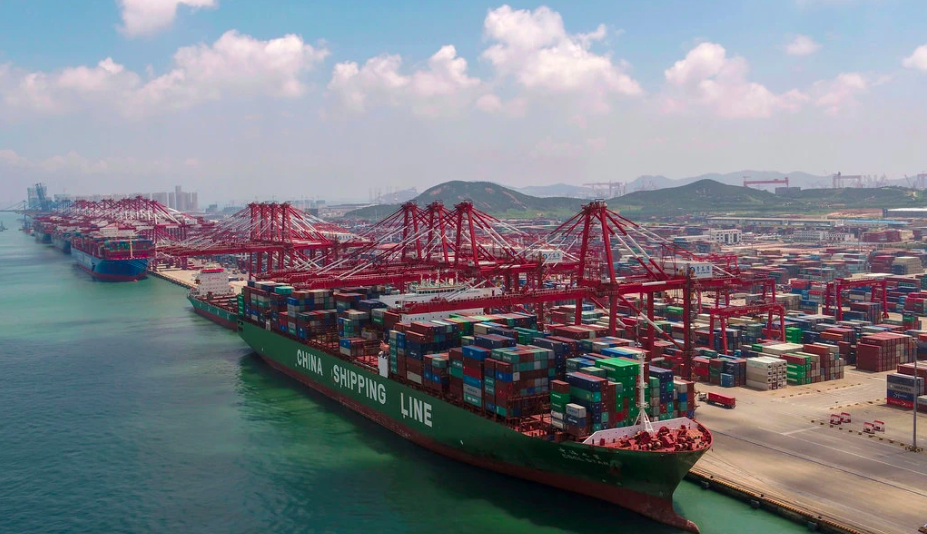By Eric Smith
Innovation is at the heart of the camping gear that NEMO Equipment Inc. envisions in the outdoors, designs at its New Hampshire headquarters, manufactures overseas and distributes around the world, but that’s merely the succinct, formal word for what drives this core outdoor brand.
The company’s product line is really the result of “passion, sweat, late nights and happy epiphanies.”
And while punitive tariffs on NEMO’s products in the past year or so have totaled about $175,000, according to COO Brent Merriam, perhaps the true cost of the ongoing trade war between the U.S. and China is that the brand now spends more time on tariff mitigation and less time on product innovation.
In other words, less time turning that combination of passion, sweat, late nights and happy epiphanies into cool new gear.
“We were planning to invest in a research and development lab, which will help us innovate and continue to grow our product pipeline,” Merriam said Thursday. “That project is currently on hold, just because of the uncertainty of the tariff situation. From one week to the next, there’s a different policy and it’s really hard for businesses to plan in this uncertain environment.”
Merriam discussed his company’s predicament during a media panel on how tariffs are impacting outdoor brands. The event, sponsored by Boulder, CO-based Outdoor Industry Association (OIA), also included Katie Kumerow, sustainability manager at Mount Airy, NC-based Nester Hosiery; Joel Cohen, manager of government affairs at Denver, CO-based VF Corp.; and Emily Vedaa, global trade manager at Portland, OR-based Columbia Sportswear Co.
The quartet was in Washington, DC, where they joined OIA representatives to meet with congressional staff and share the myriad ways this trade war is ravaging American outdoor companies and jobs.
Patricia Rojas-Ungar, VP of government affairs at OIA, and Rich Harper, manager of international trade at OIA, who are both based in Washington, were also on the call. They said the purpose of the fly-in was for the outdoor industry to form a united front in asking Congress to take a more aggressive stance on opposing tariffs—essentially a tax on American consumers—that the Trump administration has enacted.
Coinciding with the event was OIA’s Thursday report that America’s outdoor recreation businesses have paid $1.8 billion more in tariffs over the last 11 months (September 2018 to July 2019) compared to the previous period a year ago on affected outdoor products.
And since the start of the trade war with China in 2018, outdoor industry companies have paid nearly three times the number of tariffs on outdoor products hit with Section 301 China tariffs for a total of $2.8 billion, according to the report.
But there’s much more to the story than the number of dollars companies have paid to import their goods from China. As OIA outlined—and as the brands on Thursday’s panel detailed—U.S.-based outdoor brands and retailers have slowed or even stopped hiring, delayed facility expansions and paused new product development because of the economic strain that tariffs have presented.
“As we look at the companies that are absorbing much of the new tariff costs, it means that they’re looking at less resources to invest in new products, new marketing efforts, new job creation in the U.S., and new business opportunities,” Amy Roberts, OIA’s executive director, said on the call. “They might also be looking at discontinuing products that won’t be profitable. And they’re spending resources … on adjusting supply chains rather than on innovation or expanding U.S. jobs or developing new innovative products.”
The hiring slowdown was a hot topic for the panel. NEMO, for example, has put three positions on hold “that are critical to our ability to grow,” Merriam said. That includes an HR manager, an international sales director and a master data manager.
“These are all professional, high-paying professional jobs that would be going to U.S. citizens, but we were just not in a financial position, based on the tariffs, to be able to hire those people right now,” he said.
VF (parent of The North Face, Timberland, Smartwool and others) has spent much of the past year dealing with a cross-country relocation in addition to tariffs, the latter of which has hindered the company’s hiring ability in certain departments such as supply chain. While Cohen wasn’t able to specify how many positions have been affected, the tariff situation, coupled with a massive move, has been problematic, to say the least.
“We’re trying to figure out where we can fit in the right folks in the right places,” he said. “With the tariffs continuing, it really makes it difficult for us to plan and put those people in place. In an ideal world, we wouldn’t have to be worrying about this on top of the fact that we just moved an entire multibillion-dollar company across the country.”
The problem is equally complex at Nester Hosiery, which is smaller than VF and not moving its headquarters but is feeling a sizeable impact from increased tariffs on the materials it imports for its socks. Based on current market conditions, Kumerow said, it’s actually more cost-effective to manufacture overseas and bring in the final product to sell here rather than import materials and produce socks in a U.S. factory, as Nester does.
“Right now, the way tariffs are affecting our business is really limiting our competitiveness,” she said. “The customers we work with are probably contemplating whether or not they should get their socks or their other goods outside of America through other vendors.”
One solution that President Trump has suggested in recent weeks is one that many brands have contemplated and perhaps even completed—moving some or all of their manufacturing out of China to a country like Vietnam or Cambodia.
When SGB asked the panel participants for their thoughts on this possibility, not surprisingly they said it’s much easier said than done. After all, most brands have spent years, perhaps decades, forging trusted relationships with manufacturing partners in China. Abandoning them for a new factory in another country would cost time and money. And moving production back to the U.S. is damn near impossible.
“One of the things that’s really challenging about moving manufacturing jobs back to the U.S.—and that’s one of the pressures that the Trump administration would love to see—is that in our industry, those jobs went away many, many years ago,” said Columbia’s Vedaa. “But what does remain are these high-value-add jobs that we all employ in our individual companies. We have executive leadership, sales, operations. So there’s a lot of other opportunities that we would rather be investing in than looking for alternative sourcing.”
NEMO, which has a fairly diversified supply chain with manufacturing facilities in China and elsewhere, has moved some production out of China in reaction to the tariffs “basically out of necessity,” Merriam said.
“It’s something that can be done,” he said. “But we essentially had to incur costs of duplicating tooling, of retraining factory staff to understand our quality standards and to be able to perform the tests that will validate the process. Rather than duplicating those efforts to find a new supply chain, I would much rather be innovating new products.”
That gets to the heart of how this trade war is impacting the outdoor world. Any business that is focused on reclassifying imports or retaining trade attorneys or retraining factory partners can’t focus on their core value proposition—making products that fuel the passions of the multibillion-dollar outdoor industry.
If the trade war persists, more and more stakeholders in the industry—from brands to retailers and especially to consumers—will feel the effects for a long time.
“We are a company that is known for innovation and our growth from a business standpoint has come on the backs of new product development and new product introductions,” Merriam said. “The last year, we’ve diverted a lot of resources to finding alternate supply chains rather than innovating new products. And I’m concerned that that’s going to hurt us over the course of the next couple of years.”
Editor’s note: An earlier version of this article incorrectly stated that Nester Hosiery imports materials for Farm to Feet’s socks. That brand sources and manufactures in the U.S. SGB regrets the error.
















